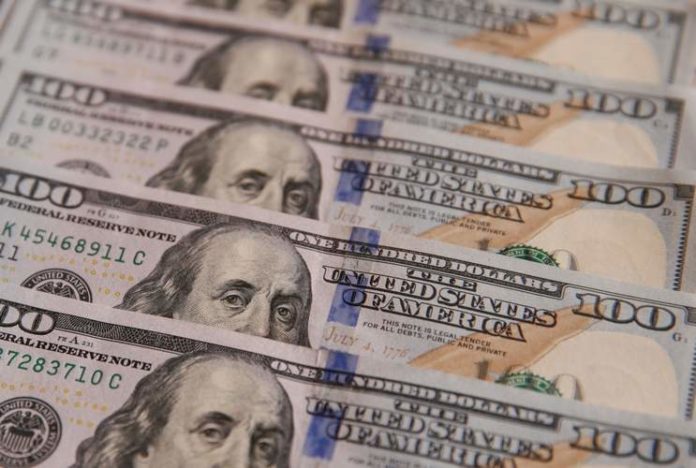
TOKYO: The dollar held on to recent gains against its major peers on Tuesday, supported by a recovery in investors’ risk appetite, which gave an overnight boost to U.S. yields.
The Australian dollar rose, reversing earlier losses after the Reserve Bank of Australia (RBA) held rates at record lows at its first meeting of the year but sounded less dovish than expected.
The dollar index, which measures the greenback against a basket of six key rivals, was barely changed at 95.846 after gaining for three straight sessions.
Trading was likely to remain subdued in Asia with many markets across the region closed for Lunar New Year holidays for much of the week.
The index rose 0.7 percent after dipping last week below its 200-day moving average for the first time since early January 2018.
It gained as Treasury yields rose with that of the 10-year jumping 9 basis points over the past two sessions.
Yields have climbed after MSCI’s gauge of global stocks hit a two-month high on Monday as optimism over recently concluded U.S.-China trade talks helped send U.S. technology and industrial shares higher.
The Aussie was last up 0.4 percent at $0.7255 about 50 minutes after the RBA’s decision.
It had traded in negative territory during most of the session after retail sales for December came in weaker than expected.
Some market players are still expecting a rate cut later this year due to mounting signs of economic weakness.
The euro was flat at $1.1438, off a three-week high of $1.15145 set on Thursday.
Against the Japanese yen, the dollar rose a tad to 109.93 yen. It had risen above 110 yen for the first time since Dec. 31 overnight.
Sterling was flat at $1.3038 after seesawing during the previous session on uncertainty over the way Britain will leave the European Union.
In late Monday trade, sterling gave up gains made earlier in the day after a newspaper report said that goods shipped to Britain from the European Union could be waved through without checks in the event of a “no-deal” Brexit.
The Canadian dollar was a shade weaker against the greenback.
It fell one-tenth of a percent overnight, reversing some of last week’s rally, as oil prices fell and the greenback broadly climbed.






